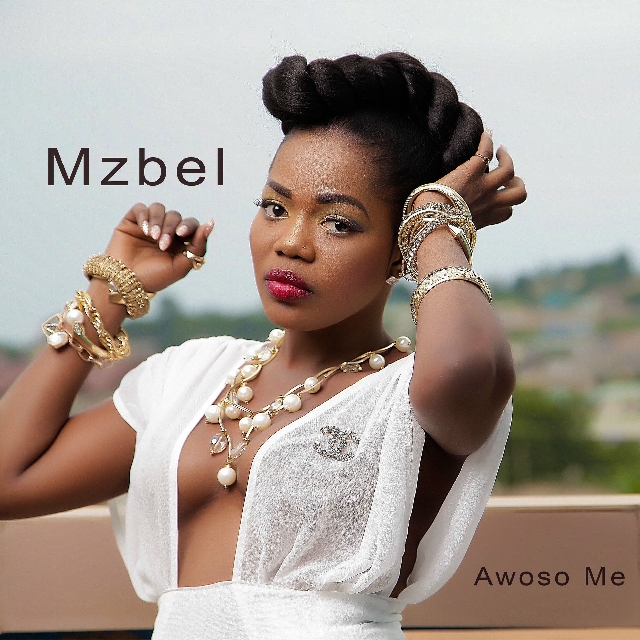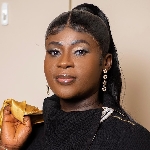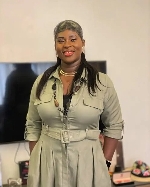Mzbel says mislabeling and media narratives have hurt her career for years
 Mzbel
Mzbel
Ghanaian singer Belinda Nana Ekua Amoah, popularly known as Mzbel, has opened up about how a long-standing public misunderstanding of her image and music affected her career, limiting opportunities she believes she rightfully deserved. Speaking on Akwaaba Drive on Accra 100.5 FM with host Sammy Brown, Mzbel confirmed that her hit song “16 Years” was released in 2005.
She stressed that the song was created to educate and protect young girls during a time when rape cases were widespread in Ghana.
According to her, veteran actress Mama Dokono was one of the few public voices actively speaking about sexual violence, and “16 Years” was her way of supporting that advocacy.
However, Mzbel said her message was misunderstood.
“They pictured me as an adulterous person,” she explained. “I was giving a positive message, but because I said ‘if you touch my thing,’ people assumed it meant something bad.
That wasn’t the intention at all.”
Earlier misinterpretations shaped public perception Mzbel revealed that part of the public judgment came from her earlier song “Awoso me”, which she admits contained mature themes presented in proverbs.
She said that although she was not too young at the time, her small body frame made people think she was a child, leading them to question her lyrics.
She compared the criticism she faced to the freedom enjoyed by others.
“Back then, the late Daddy Lumba sang very strong things, but no one attacked him,” she pointed out.
“People rather came to me, trying to tell me the things I did were not good.” How One Article Damaged Her Image Mzbel recounted that a now-deceased female writer published a detailed article about her on Showbiz, framing her as a negative influence on the youth.
“She described me in a way that made people believe everything was true,” Mzbel said.
“She never interviewed me, never listened to me. She made it look like I came as a Jezebel to spoil the youth.”
The article, she explained, shaped the media’s perception of her, and soon many outlets adopted the narrative it pushed. Lost Opportunities and Professional Setbacks When asked whether she ever lost hope because of the continuous criticism, Mzbel admitted that she did—especially when she realised the extent of the opportunities she lost.
“My songs went far, but I didn’t get the brand deals and exposure I should have gotten,” she said.
“Whenever companies planned to work with me, the media revived that old story, and people believed it.
I lost so many opportunities because of it.” She added that even when foreigners showed interest in working with her, they were discouraged by the negative portrayal circulating in Ghanaian media.
“I don't fornicate — I’m Just Feminine” Mzbel firmly rejected the label of fornication, clarifying that she is simply expressive and confident.
“If I were a man behaving this way, people would call me gay,” she said.
“I am very feminine. Many women are not bold enough to show that side, but I care less.
I like to be myself.”
She emphasised that audiences should focus on the quality of the music, not the personal assumptions made about the musician.
Trending Entertainment

Wendy Shay surprises fans in Weija–Kasoa with gifts ahead of Shay Concert 2025
15:25
Diana Hamilton shares reflections on 20 years of marriage on Accra FM's Ayekoo Ayekoo
15:10
Diana Hamilton shares inspiration behind her new song “Aha Ye” on Accra FM's Ayekoo Ayekoo with Dr. Kay
15:03
Diana Hamilton opens up about her Pentecostal roots and musical journey on Accra FM
11:56
Ghana cycle tourist embarks on mission to promote domestic tourism and national unity
15:15
God never stops giving us new testimonies – Diana Hamilton reveals powerful faith experience
11:41
Mzbel opens up: “Why I don’t miss Castro after his demise”
15:00
Esther Smith: “My mind was never on money, I just wanted to sing”
11:29
Mzbel says mislabeling and media narratives have hurt her career for years
16:03
“Charging for shows is not a sin” — Esther Smith breaks silence on why gospel musicians take money
12:19



